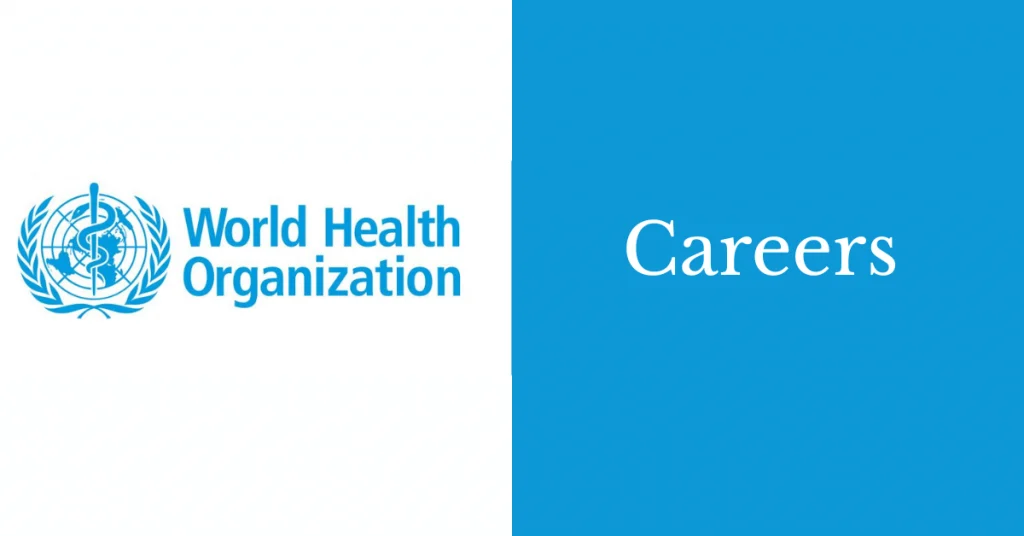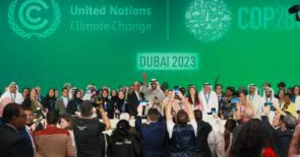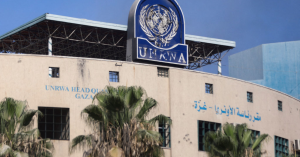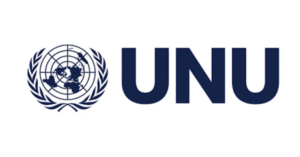No Experience? No Problem! WHO Offering 500+ Fully Funded Research Internships Worldwide (Apply Now)*The World Health Organization (WHO) has opened applications for its 2024-2025 Research Assistant Internship Program, offering 500+ fully-funded positions across 150 country offices. These 3-6 month internships require no prior professional experience and provide monthly stipends up to $1,800. Perfect for public health, medicine, and social science students – deadline for first round applications is November 30, 2024!*
Section 1: Comprehensive Program Overview
1.1 About WHO Internships
The WHO Research Assistant Internship Program serves as the organization’s primary talent pipeline, with:
- 72% of current WHO professionals having started as interns
- $15 million annual investment in early-career development
- 3,000+ alumni since program inception in 2010
1.2 Program Evolution
Originally designed as observational experiences, today’s internships are project-based placements where interns:
✔ Lead discrete research components
✔ Co-author peer-reviewed publications
✔ Present findings at WHO regional meetings
1.3 Geographic Distribution
The 2024 cohort will place interns across:
- 40% in regional offices (Africa/SE Asia most common)
- 35% at headquarters (Geneva)
- 25% in country offices (priority nations)
“My internship in Manila completely changed my career trajectory. I went from classroom theories to designing actual dengue prevention strategies.”
- Dr. Anika Patel, WHO Technical Officer (former 2018 intern)
No Experience? No Problem! WHO Offering 500+ Fully Funded Research Internships Worldwide (Apply Now)
Section 2: Detailed Position Analysis
2.1 Research Focus Areas
A. Infectious Diseases (32% of placements)
- COVID-19 variant tracking
- Antimicrobial resistance mapping
- Vaccine hesitancy studies
B. Non-Communicable Diseases (28%)
- Diabetes prevention programs
- Mental health policy analysis
- Cancer registry development
C. Health Systems (25%)
- Universal health coverage metrics
- Health workforce modeling
- Digital health implementation
D. Emergency Response (15%)
- Disaster preparedness frameworks
- Outbreak analytics
- Humanitarian coordination
2.2 Typical Work Week Breakdown
| Activity | Time Allocation | Output Examples |
|---|---|---|
| Literature Reviews | 15 hours | Annotated bibliographies |
| Data Analysis | 10 hours | STATA/Python visualizations |
| Field Coordination | 8 hours | Community survey protocols |
| Report Writing | 7 hours | Draft technical briefs |
| Professional Development | 5 hours | WHO Academy courses |
Section 3: Eligibility & Application Masterclass
3.1 Academic Requirements
- Undergraduates: Must be in final year (thesis students preferred)
- Graduates: Within 12 months of degree completion
- GPA Minimums:
- 3.2/4.0 for high-income countries
- 2.8/4.0 for developing nations
3.2 Language Proficiency Framework
| Level | Required Skills | Verification Method |
|---|---|---|
| Basic | Read technical documents | University transcripts |
| Intermediate | Participate in meetings | 500-word writing sample |
| Advanced | Present research findings | Virtual interview test |
3.3 Step-by-Step Application Guide
Phase 1: Document Preparation (4-6 weeks)
- Academic Records: Obtain official transcripts
- Recommendation Letters: Secure 2 faculty endorsements
- Writing Samples: Prepare 2 research excerpts (5-10 pages)
Phase 2: Online Submission
- Navigate WHO’s Talent Management System
- Complete 12-section profile
- Upload PDF portfolio (max 15MB)
Phase 3: Competency Assessment
- Situational Judgment Test (45 minutes)
- Research Scenario Exercise (72-hour take-home)
Pro Tip: 83% of successful applicants customize materials for specific technical units
Section 4: Funding & Logistics
4.1 Comprehensive Stipend Breakdown
| Location Tier | Monthly Amount | Additional Benefits |
|---|---|---|
| Tier 1 (Geneva) | $1,800 | Health insurance + transport pass |
| Tier 2 (Regional) | $1,300 | Housing allowance |
| Tier 3 (Country) | $1,000 | Visa sponsorship |
4.2 Housing Options Comparison
- WHO-Arranged: 15% discount but limited availability
- Private Rentals: More flexibility near offices
- Homestays: Cultural immersion opportunities
4.3 Visa Processing Timeline
Diagram
Code
Section 5: Career Pathways & Alumni Success
5.1 Post-Internship Opportunities
- Direct Hire: 22% convert to WHO consultancies
- Further Study: 35% pursue WHO-sponsored degrees
- Government Roles: 18% join national health ministries
5.2 Notable Alumni
- Dr. Femi Oke (Nigeria): Now leads WHO Africa’s polio eradication
- Dr. Li Wei (China): Developed AI disease surveillance tools
- Dr. Carlos Mendez (Peru): Shapes regional AMR policies
5.3 Skills Development Framework
- Technical: GIS mapping, outbreak analytics
- Professional: UN protocol, diplomatic communication
- Leadership: Multicultural team management
Section 6: Insider Application Strategies
6.1 Research Unit Preferences
| Department | Selection Rate | Key Attributes Sought |
|---|---|---|
| Health Emergencies | 8% | Crisis response coursework |
| Data & Analytics | 12% | Python/R certification |
| Policy Planning | 5% | Model UN experience |
6.2 Common Rejection Reasons
- 63% Incomplete vaccination records
- 28% Generic motivation statements
- 9% Language test failures
6.3 Interview Preparation Guide
- Technical Questions: “How would you design a malaria prevalence study?”
- Behavioral Questions: “Describe resolving team conflicts”
- WHO-Specific: “Align your goals with GPW13”
Current Statistics & Deadlines
2024 Program Metrics
- Applications Received: 18,000+ annually
- Acceptance Rate: 2.7%
- Gender Balance: 58% female, 42% male
Upcoming Cycles
| Intake | Application Period | Placement Dates |
|---|---|---|
| Winter | Oct 1 – Nov 30, 2024 | Jan-Mar 2025 |
| Summer | Mar 1 – Apr 30, 2025 | Jun-Aug 2025 |
Top SEO Keywords
WHO internships 2024, global health research assistant, no experience UN jobs, fully funded medical internships, World Health Organization opportunities, public health student jobs, WHO stipend amounts, remote health research jobs, undergraduate WHO positions, Geneva international internships





[…] ALSO CHECK : No Experience? No Problem! WHO Offering 500+ Fully Funded Research Internships Worldwid… […]